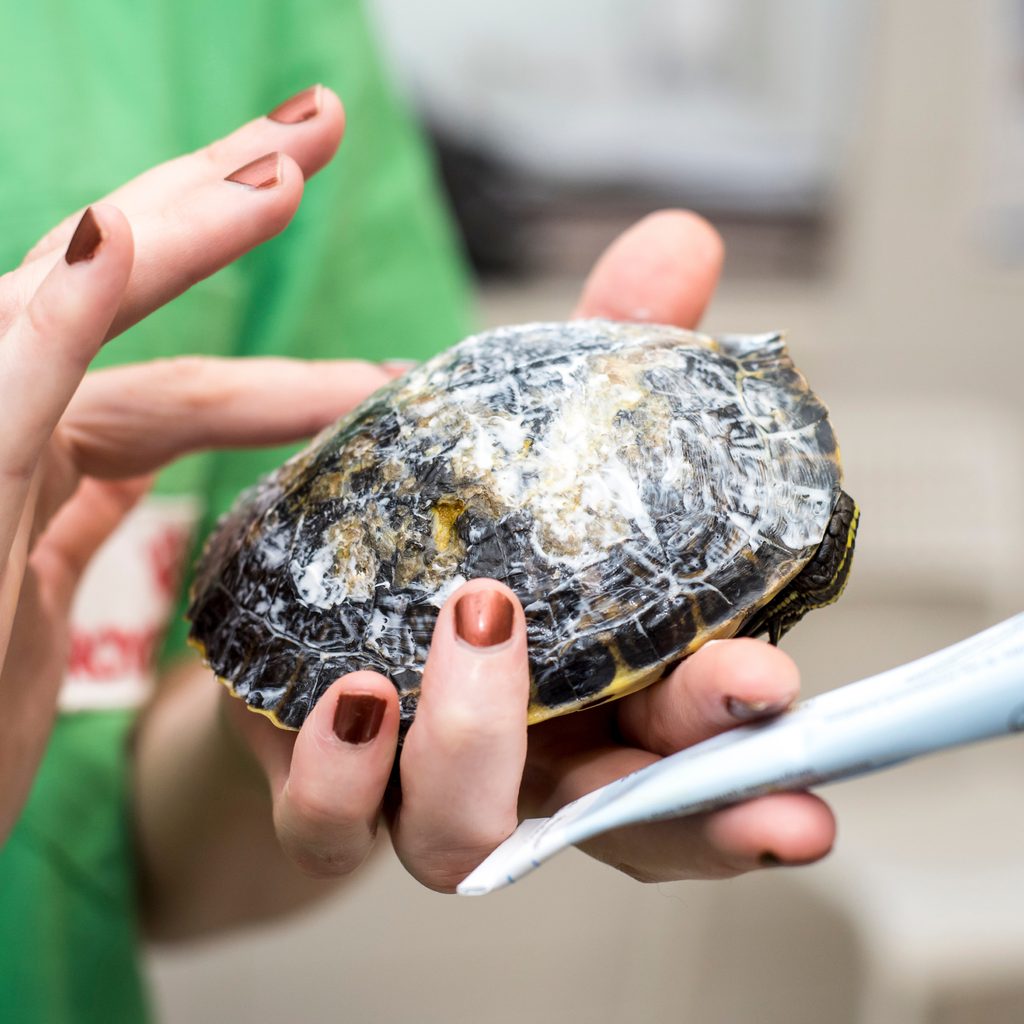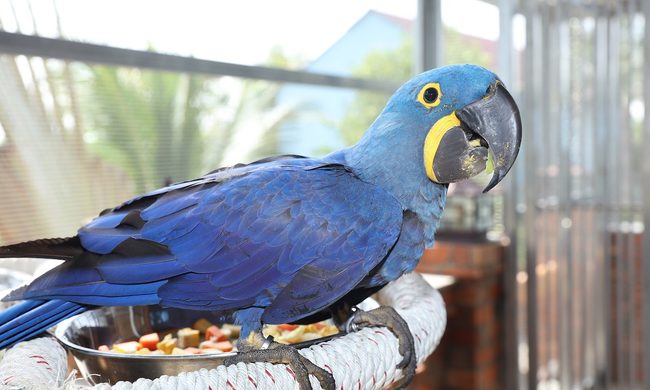We all know what a sick human looks like: fever, flushed face, chills, and maybe a cough. But it’s much more difficult to tell when your turtle feels bad. Unfortunately, he can’t tell you (in words at least), and he won’t necessarily exhibit the symptoms we recognize. That doesn’t mean you have to develop a psychic connection with turtles to assess their health. You have a few easy ways of knowing when something’s wrong with your reptile. Here’s how to tell if your turtle’s sick.

Preventing illness
While every person gets sick sometimes, your turtle can live a long life disease-free with the right care. Remember, this pet is one of the longest-lasting (only really beaten by his cousin, the tortoise) and requires daily care for about 50 years. So, think carefully before you commit!
The best way to prevent him from getting sick is to:
- Keep his tank clean
- Feed him nutritious food
- Keep his environment stable
Turtles need protein, which can often involve feeding them live fish or other meat like insects. Tank cleanliness can also drastically reduce the chances of your turtle getting sick. Remember, both the water and the land need to stay free of leftovers and leavings to keep away bugs and bacteria. Lastly, your animal has mental needs, too. Keep him stimulated with enrichment items and games in his habitat to ensure he stays completely sharp.
Spotting sickness
Just like with us, you may notice your turtle losing his appetite or slowing down if he’s not doing well. While turtles of advanced age do cut back on swimming and munching a bit, a sudden change in behavior means something is not right. Look especially closely for him turning his nose up at food as that’s a clear signal that he isn’t feeling his best. Turtles get diarrhea, too, so you’ll have to check him out if he’s suddenly not regular. Other symptoms to watch for include swollen eyes and a runny nose. Yup, your pet can get a turtle cold (sort of), which means a trip to the vet for both of you. Really, any erratic behavior should clue you in that your turtle requires further inspection.
Determining disease
Anytime your animal gets sick, you’ll want to take him to the reptile vet. However, there’s some doctoring you can do at home to find the cause of his illness.
- Does his shell feel too soft? That means he’s not getting the right nutrients, and it’s time to adjust his diet.
- Is his skin or undershell turning red? This could be a symptom of an infection.
- Is your turtle choking? He may have swallowed some gravel or other foreign body, or he might have a respiratory infection.
Keep a thorough list of his issues for your vet visit to help diagnose his condition.

Helping him get better
Getting to the bottom of his sickness will go a long way toward fixing the issue and preventing it from recurring. If you decide an infection’s to blame, you’ll want to ask your vet for the right medicine to get rid of the problem. You should also clean his tank thoroughly for prevention. In addition to turtle medicine, you might need to treat the water with conditioner, which can help keep his habitat in balance. Or maybe you find out that your turtle is prone to exploring with his mouth (and swallowing things whole). Then you’ll want to change up the environment to get rid of the temptations. No matter what, think ahead to not just curing his illness but also to helping him stay healthy in the future.
If you’re feeding your turtle in a separate container, you have a good chance to inspect him daily. Use this opportunity to give him a little look over. Remember to also monitor his food intake, sunbathing excursions, and swimming routine. Feel free to keep a log if you’re forgetful or if multiple people in the household share turtle-care responsibilities. That way, you’re sure to notice when something’s amiss and get him fixed up in no time. In rare cases, turtles can pass diseases to humans as well, so research the risk of cross-contamination when you find out what ails him. No matter what, wash your hands after every contact. He won’t be offended.




